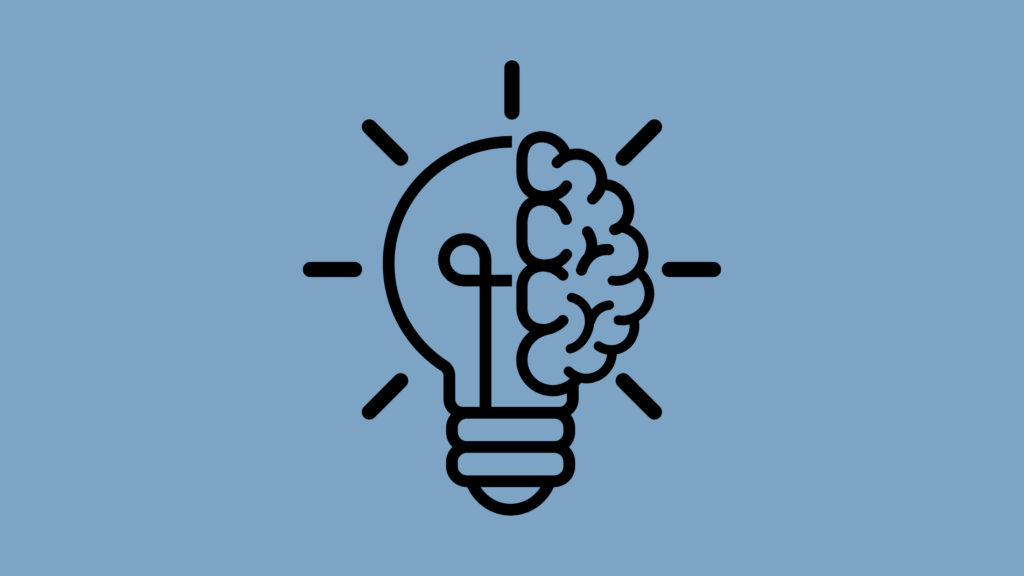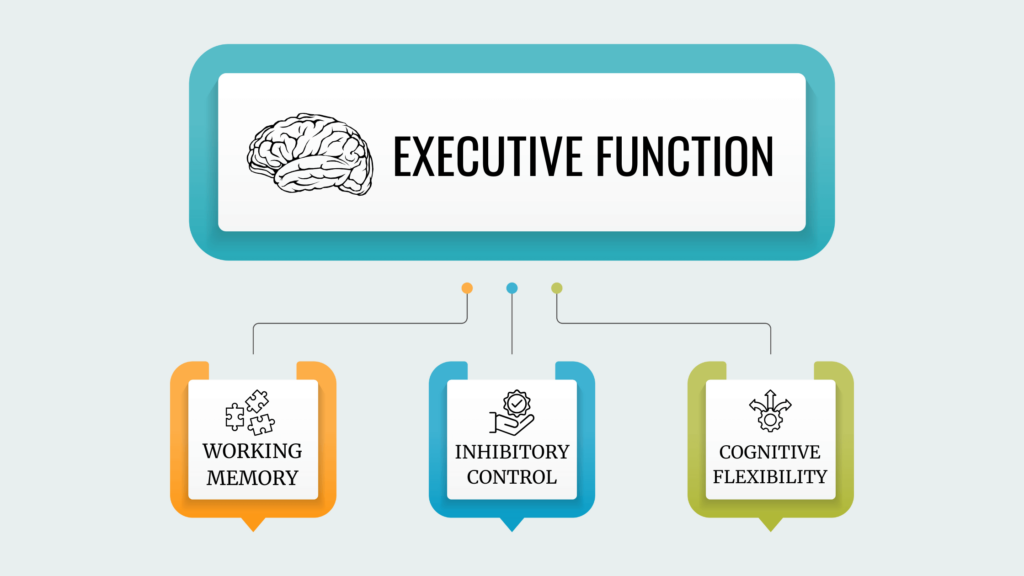Whether managing complex projects or solving on-the-spot problems, having the mental tools to stay focused, organized, and adaptable in a fast-paced, high-pressure environment can make all the difference. Strengthening executive function boosts productivity and helps manage stress. Simple strategies like breaking up taste and using visual reminders can help ensure you stay sharp and effective no matter what challenges come your way.
Quick look
- Executive function skills—working memory, inhibitory control, and cognitive flexibility—help you stay organized, focused, and adaptable in high-pressure environments like AEC.
- Executive function drives decision-making, problem-solving, and safety on the job site, benefiting managers and field workers.
- Chronic stress disrupts executive function, decreasing productivity, safety risks, and decision-making challenges.
- Simple strategies, such as breaking tasks into steps, using visual reminders, and practicing cognitive exercises, can sharpen focus and improve productivity.
What is executive function?

Executive function refers to mental skills that help individuals focus, plan, and adapt to changing situations. These skills, which include working memory, inhibitory control, and cognitive flexibility, act as the brain’s management system, guiding your ability to prioritize tasks, make decisions, and regulate emotions. Without well-functioning executive skills, it becomes harder to meet deadlines, adapt to unexpected changes, or stay organized in the chaos of daily life.
When executive function is impaired, everyday tasks can feel like uphill battles. Maintaining focus, meeting deadlines, following instructions, and managing emotions may require significantly more effort. According to experts like Russell Barkley, Ph.D., these challenges are commonly experienced by individuals with ADHD, which he describes as a disorder of executive functioning.
These skills are critical in the AEC industry, where tight schedules and unpredictable challenges are the norm. This invisible toolset keeps projects running smoothly. Staying focused and adaptable is crucial with so many moving parts—deadlines, budgets, safety protocols, and client expectations. Executive function allows managers and field workers to navigate challenges, solve problems efficiently, and maintain a high standard of work.
Imagine coordinating a project timeline or making decisions under pressure—executive function helps you stay on track without being overwhelmed. Strong executive function skills are the foundation for problem-solving and goal-setting, essential for thriving in high-stakes environments.
This mental skill set is crucial for leaders, managers, field workers, and team members. For example, staying focused on safety protocols while adapting to unexpected changes on-site requires inhibitory control and cognitive flexibility. Enhancing focus skills can improve efficiency, reduce stress, and contribute to a more productive workplace.
The 3 components of executive function

Executive function is built on three core facets: inhibitory control, working memory, and cognitive flexibility. These mental skills form the foundation for staying focused, organized, and adaptable—qualities essential in AEC’s fast-paced and often unpredictable world.
1. Inhibitory control
Inhibitory control is the ability to resist distractions and impulses and stay focused on tasks even when interruptions occur. Inhibitory control is vital in industries where safety and precision are critical. For example, a field worker operating heavy machinery must remain focused on their task despite the noise and activity around them. Similarly, managers need inhibitory control to avoid getting sidetracked by minor issues while focusing on overarching project goals.
A lack of inhibitory control can lead to mistakes, missed deadlines, or safety hazards. By strengthening this skill, individuals can prioritize effectively and maintain their focus under pressure, leading to better outcomes.
2. Working memory
Working memory is the ability to hold and use information in the moment, an essential skill in complex environments like construction sites or design planning meetings. It allows workers to remember instructions, follow multi-step processes, and apply knowledge to solve problems in real-time.
For instance, a contractor reviewing blueprints on-site must recall specific measurements while assessing how they align with the physical layout. Without a strong working memory, juggling these details becomes much more complicated, increasing the risk of errors. Improving working memory can enhance focus and problem-solving abilities, which are crucial in dynamic environments.
3. Cognitive flexibility
Adapting to new situations and perspectives, or cognitive flexibility, is important in an industry where conditions can change instantly. Cognitive flexibility allows professionals to pivot their plans without losing sight of their goals, whether a sudden weather event, a supply chain delay, or last-minute design changes.
For example, a project manager might need to shift timelines or allocate resources differently to accommodate unexpected delays. Field workers might face scenarios requiring creative problem-solving to stay on track. Cognitive flexibility fosters resilience and innovation, ensuring teams can overcome challenges and maintain progress.
Stress and executive function
Tight deadlines, complex projects, and the ever-present need to ensure safety can create significant mental pressure. While some stress can motivate performance, chronic stress often has the opposite effect: it undermines executive function and impairs productivity, safety, and decision-making.
Stress disrupts executive function by overloading the brain’s capacity to manage tasks. When you’re stressed, the prefrontal cortex—the part of the brain responsible for planning, focus, and problem-solving—struggles to function effectively. This can lead to difficulty prioritizing tasks, maintaining attention, or adapting to new challenges. Chronic stress can diminish working memory and cognitive flexibility, two critical components of executive function.
These effects can have serious consequences. Workers experiencing high stress may overlook safety protocols, leading to increased risks on job sites. Project managers under pressure may struggle with decision-making, resulting in delays or costly errors. Over time, this impacts individual well-being and disrupts team dynamics and overall project success.
5 tips to improve executive function

Improving executive function isn’t about overhauling your life—it’s about adopting small, effective habits that enhance focus, planning, and adaptability. Here are some actionable strategies to help you stay sharp and productive, even in high-pressure environments.
1. One step at a time
Large, complex tasks can feel overwhelming, especially in an industry where projects involve many moving parts. Breaking these tasks into smaller, manageable steps makes them less daunting and more achievable. For example, list each phase and its specific deliverables if you’re coordinating a project timeline. Tackling one piece at a time clarifies priorities and builds momentum, making it easier to stay on track.
2. Visual reminders
Out of sight, out of mind—this is especially true for executive function. Visual prompts act as external cues, helping bridge gaps in memory and focus. For instance, workers on-site might use a checklist to ensure safety procedures are followed, while managers can benefit from digital tools to monitor project progress. Visual reminders like whiteboards, sticky notes, or project management software can help keep essential tasks front and center.
3. Nootropics
Also known as cognitive enhancers, nootropics are supplements or dietary changes designed to improve mental clarity and focus. While some, like caffeine, are commonly known, others, like omega-3 fatty acids, ginkgo biloba, and L-theanine, are gaining popularity for their brain-boosting benefits. These supplements can be especially useful in high-stakes environments where sharp decision-making is essential. However, it’s important to consult with a healthcare professional before incorporating nootropics into your routine to ensure they’re safe and effective.
4. Build healthy routines
Healthy routines are the foundation for sustained mental performance, and your daily habits play a significant role in executive function. Regular exercise, sufficient sleep, and mindfulness practices like meditation can strengthen focus and reduce stress. Exercise increases blood flow to the brain, boosting cognitive function, while sleep helps consolidate memories and improve decision-making. Mindfulness techniques can also enhance emotional regulation, which is key for managing stress.
5. Practice cognitive exercises
Just like physical exercise strengthens the body, cognitive exercises can sharpen the brain. Puzzles, strategy games, and learning new skills challenge your brain, improving cognitive flexibility and working memory. For instance, solving a complex problem in a game mirrors the decision-making process in the workplace, helping build resilience and adaptability. Dedicating 10-15 minutes daily to such activities can yield significant improvements over time.
Bottom line
Whether managing a complex construction project, adapting to on-site challenges, or leading a team, strong executive function skills enable you to stay focused, organized, and flexible. These mental tools aren’t just critical for professional success—they also play a key role in reducing stress and improving overall well-being.
Enhancing executive function doesn’t require an overhaul. Small, actionable steps, such as breaking tasks into manageable pieces, using visual reminders, and building healthy routines, can make a big difference. By prioritizing these habits, you’ll improve your focus and productivity and set yourself up for long-term success in any role.
Stay ahead in the industry by keeping your mind sharp and your strategies strong. Sign up for our newsletter and follow us on social media for more tips, insights, and resources to help you thrive.


